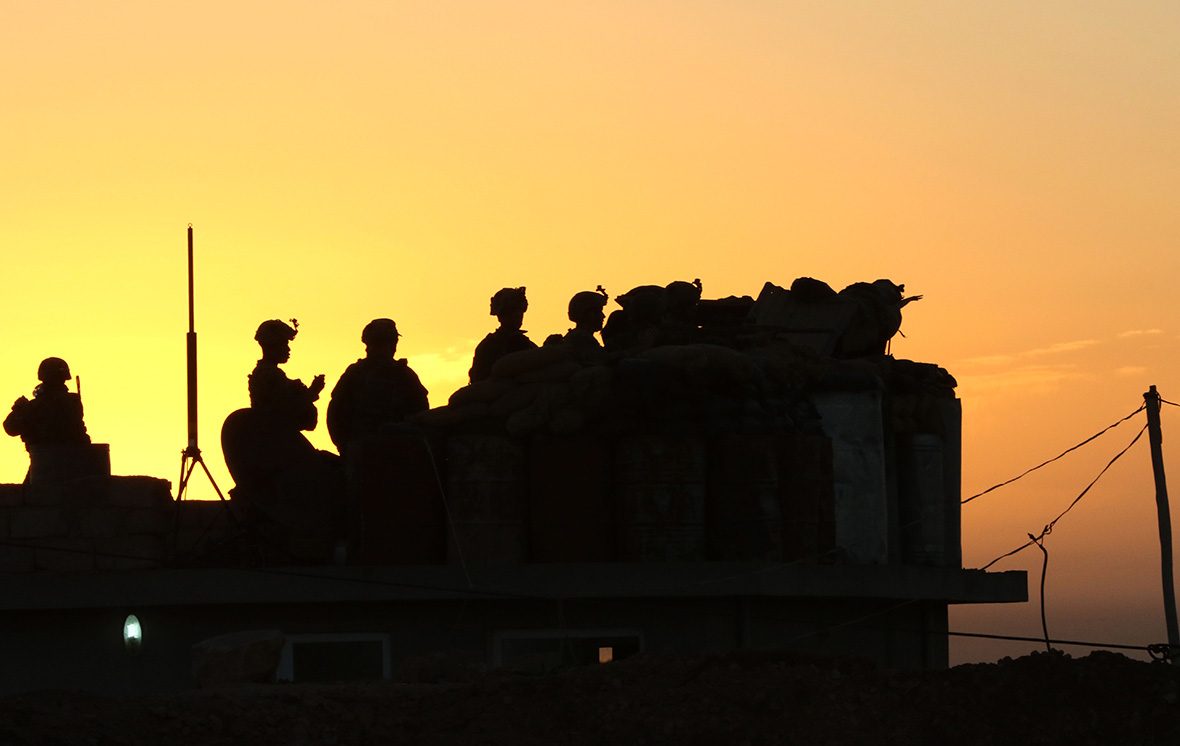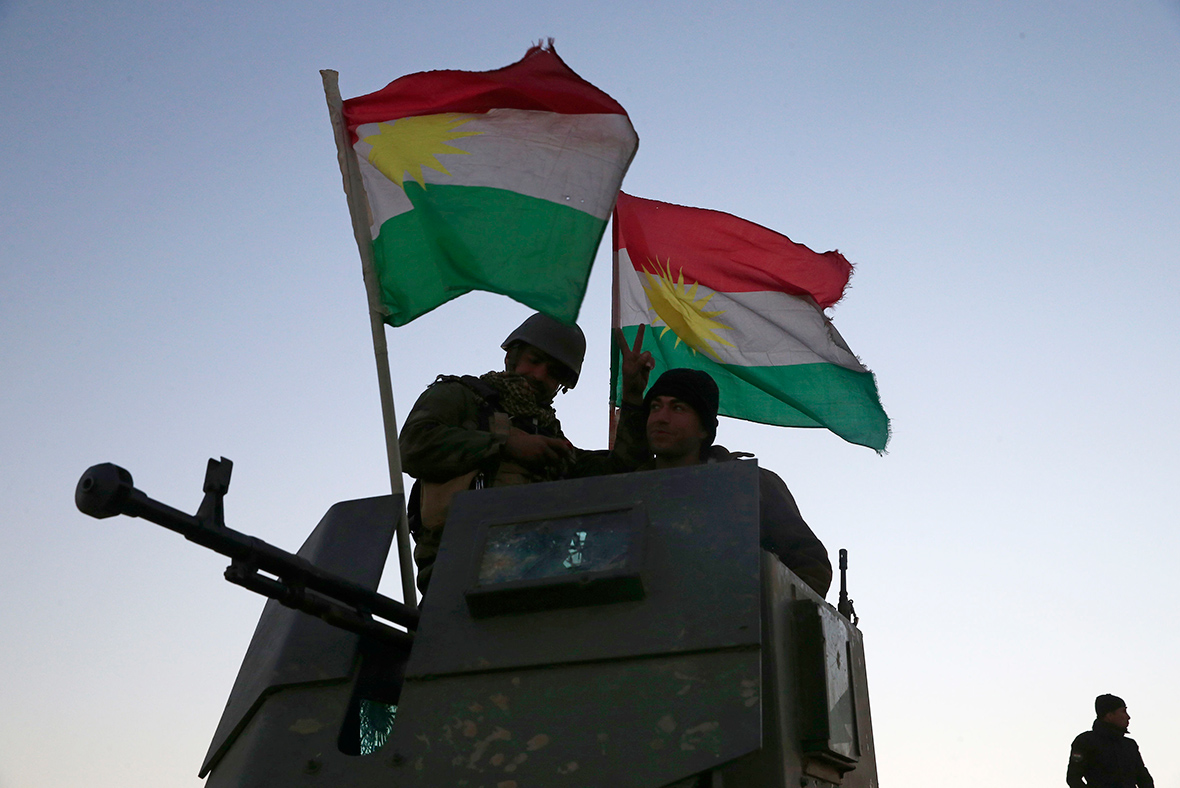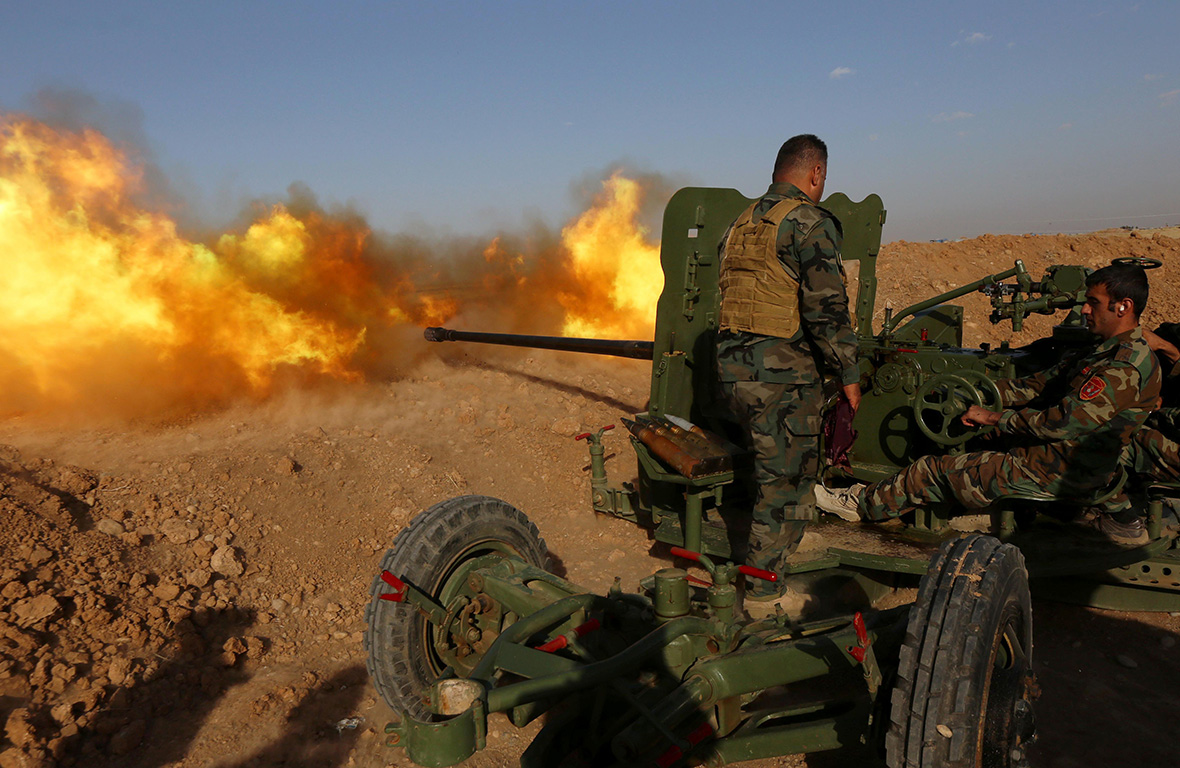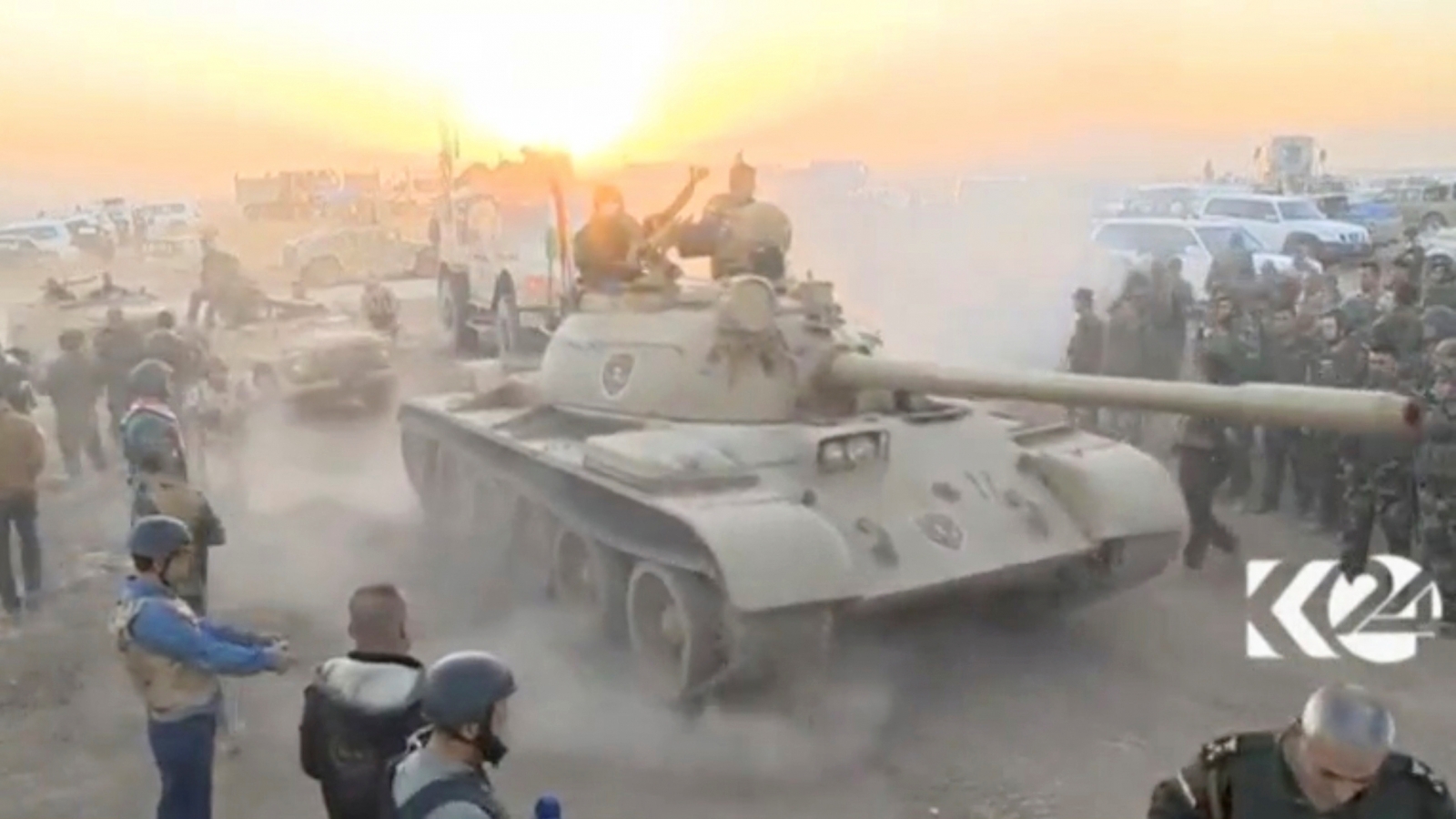Mosul front: Kurdish fighters face Isis death wagons and die-hard snipers in final battle
IBTimes UK reports from northern Iraq as Peshmerga advance column probes Islamic State's last bastion.
A hunter's supermoon rose over northern Iraq on Sunday night (16 October), the yellow light bright enough to cast shadows on the Nineveh Plains. Mosul city also cast its lights across the plains, twinkling peacefully. Closer to the Kurdish front line, and under a pall of black smoke rising from burning oil pits, Islamic State fighters holed up in a series of hamlets around the town of Bartella, preparing their last stand.
They had lit the fires to shield their movements from the omnipresent view of coalition fighter jets flying overhead. But throughout the night the thunderous explosions of air strikes rolled towards the Kurdish front lines.
Next to long convoys of vehicles, huddled around fires and under blankets, thousands of Peshmerga fighters shivered through the chill autumn night, waiting for dawn. As wild dogs bayed, all the signs presaged the start of an enormous military operation.
The Peshmerga were just one of the groups mustering along front lines in northern Iraq. In addition to Iraqi Security Forces (ISF) and the Peshmerga, sectarian militias, Western special forces, and Turkish troops all share a goal of driving IS from Iraq, whose last major urban population centre is in Mosul.
With various anti-IS groups at loggerheads, they appear less an unlikely alliance than a loosely-lashed life-raft whose cohesion offers perhaps a last chance for the future of Iraq. That a rogue terrorist organisation with a few thousand fighters could hold Iraq's second largest city for two-and-a-half years speaks more to a lack of alternatives than to any great love of IS within Mosul, and the motley coalition assembled to drive the jihadists from the city will have to prove to the largely Sunni Arab population that it can offer them a better future.
But for now the coalition is focused on the fighting necessary to get to the Mosul city limits. The Peshmerga's role on Monday would be to clear a cluster of IS-held villages on the highway towards Erbil, Iraq's Kurdish capital.
By dawn the offensive was underway, announced by salvos of Katusha rockets. Sunrise revealed the grubby smog hanging low over the plains and lumbering convoys of Peshmerga crossing the berms at breach points to the east and north of their final objective.







The mismatched caravans stretched for kilometres, two prongs circling a rocky hilltop called Zardak. Battered and patched Humvees bore the scars of fights stretching back to the American occupation. Trundling trucks loaded with earth movers. Mobile medical clinics, ambulances, fire engines, a mobile home and a bus.
More nimble pick-up trucks swerved around the slower moving traffic, oblivious to the risk of mines buried under the dust. Special forces on dirt bikes zipped along the hillside in parallel to the cavalcades.
An inevitable traffic jam and then mortar rounds landing either side kicking up plumes of dust. The Peshmerga fighters lounging in open cabs smoked cigarettes nonchalantly, sang, and occasionally descended to urinate.
By mid morning the convoys met at a village called Bazwar in a pincer movement that saw them take fire from several directions at once. Coalition air strikes targeted die-hard IS fighters sniping from nearby settlements, mortar rounds fell at random and the Peshmerga fanned into the fields, crouching in the open.
In the village more Peshmerga and American special forces took up rooftop positions as mine-clearance vehicles beat safe paths into the dust and earth movers piled dirt into defensive bulwarks.
IS called me up and told me how they had executed my brother






Their work was incomplete when the suicide bombers came, heavily-laden vehicles lurching like charging rhinos. Each time the Peshmerga stopped the death wagons in a hail of machine gun fire, whereupon they disgorged fighters strapped with suicide vests. They too were cut down, or disappeared in earth-rending explosions which sent grey smoke heavenwards.
By early afternoon when the fighting died down, the Peshmerga were in control of their objectives. They would go no further, said an officer as the earth movers consolidated their frontline. A score more villages would be retaken this week said the officer, who asked that his name be withheld as he was not authorized to speak publicly. Instead, the Iraqi army would continue the operation.
Waiting back at the old front line, a convoy of Iraqi Golden Division special forces gunned the engines of their black humvees, while black-clad masked fighters struck defiant poses and flashed peace signs.
Brigadier Barzan Ali Salah watched the scene with satisfaction, filming on his smartphone. Perhaps by way of explanation he then brought up another clip. It showed his brother, dressed in an orange jumpsuit and held in a cage, being interviewed in an IS propaganda film. "They called me up afterwards and told me how they had executed him," the burly fighter said. "We the Kurds know we have to be better than this though."
© Copyright IBTimes 2024. All rights reserved.






